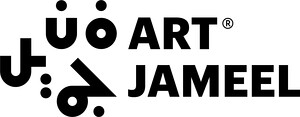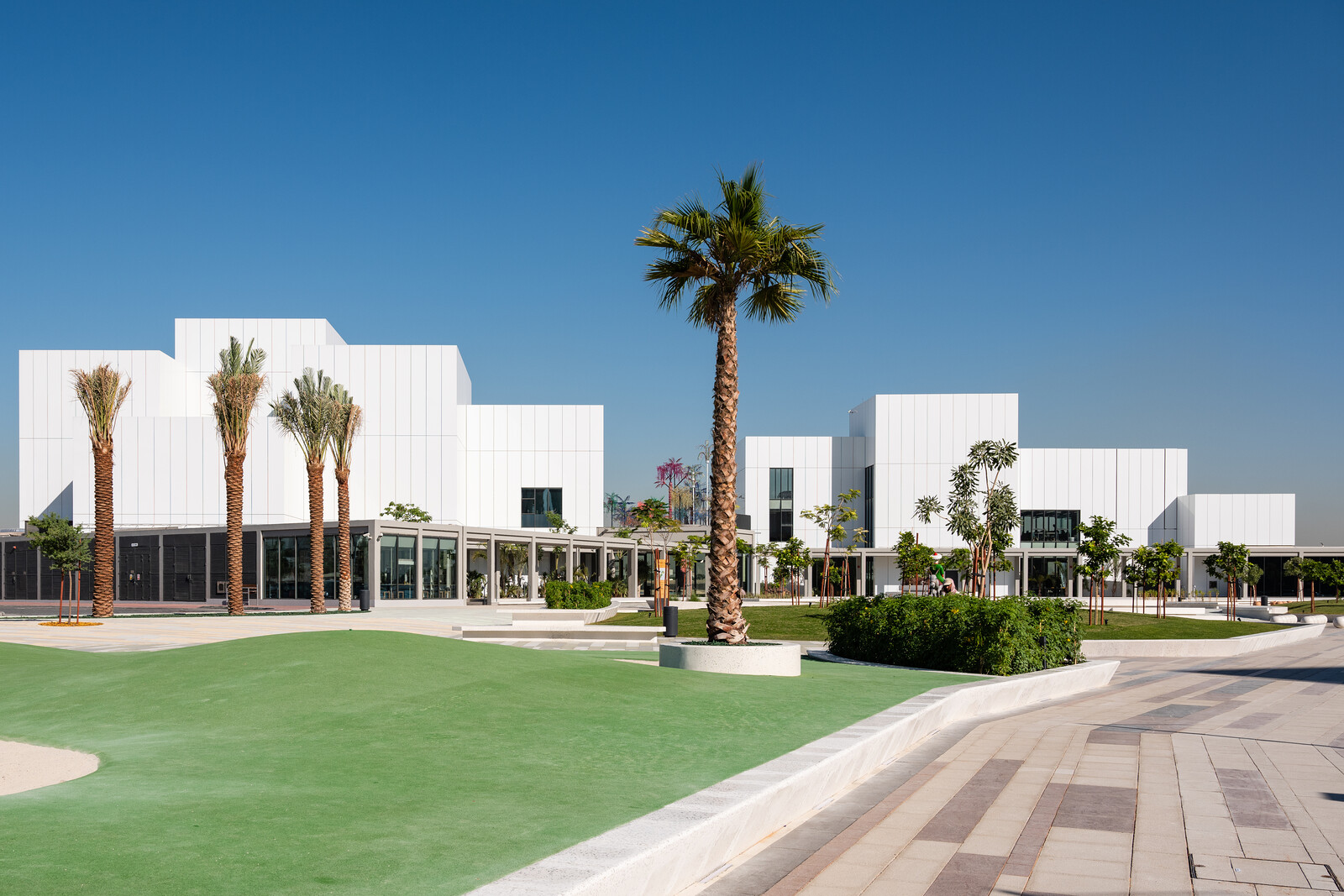Composition for a Public Park
November 2, 2019–June 8, 2020
Jaddaf Waterfront
Dubai
United Arab Emirates
Hours: Wednesday–Monday 10am–8pm,
Friday 12–8pm
T +971 4 873 9800
hello@artjameel.org
Jameel Arts Centre, Dubai’s contemporary arts institution, and Digital Earth, a global research network of artists and scholars, are collaborating to present Digital Earth Talks, a dynamic, free two-day programme of talks, screenings, panel discussions and performances. The event runs parallel with the launch of Composition for a Public Park, a major, multi-lingual musical artwork by artist and musician Hassan Khan, takes over the Jameel’s sculpture park from November 2, 2019, to June 8, 2020.
Composition for a Public Park
Jaddaf Waterfront Sculpture Park, adjacent to the Jameel and developed in partnership with Dubai Holding, is the site of a major installation by Hassan Khan, Composition for a Public Park, from the Art Jameel Collection. A previous iteration of the work was shown at the 57th Venice Biennial, where it won the Silver Lion. Unfolding in three simultaneous movements, this iteration of Khan’s multi-channel piece includes a spoken libretto recorded by male and female actors in Arabic, Urdu and English. The work is freely accessible for all to experience, day and night.
Digital Earth Talks
Taking place November 7-8, 2019, this free, open event brings together artists, scholars and designers from Africa, Europe and Asia to explore how our conception of technology and its uses are shaping geopolitical and interpersonal relationships. The term Digital Earth references the conceptual “digital twin” to Planet Earth, comprised of algorithmic regimes generating, tracking and accumulating the data currently shaping, exploiting and regulating the movement of goods and people around the world. With a global roster of speakers, Digital Earth Talks rethinks the possibilities of cosmologies—the universal narratives humans create to explain the world—and map-making—from discursive storytelling to graphic representations—to understand how digital technologies shape our world today and in the future. Participants include James Bridle, Federico Campagna, Clapperton Chakanetsa Mavhunga, Arianne Conty, Wael Eskandar, Vladan Joler, Jean Katambayi Mukendi, Brendan McGetrick, Nanjala Nyabola, Nishant Shah, Maarten Vanden Eynde, Lawrence Abu Hamdan, Nadia Christidi and Nada Raza.
Digital Earth Talks’ programme includes public presentations each afternoon (2-7:30pm). These are preceded each morning (10am-1pm) by Digital Earth Knowledge Studio led by theorist and technologist Nishant Shah, for which prior registration is required here.
Under the theme Cosmologies: What Worlds Will We Produce?, the public session on Thursday, November 7 begins with lectures by philosophers Federico Campagna and Arianne Conty exploring cosmologies that propose new relations with technology. Building on old and alternate histories, these radical perspectives offer oppositions to present-day power relations and values entwined with technology. Clapperton Chakanetsa Mavhunga, Associate Professor at MIT and Brendan McGetrick, Creative Director of Dubai’s Museum of the Future, address the global climate crisis, impending water and food insecurities and the necessity for innovation, interconnection and community-based knowledge.
Sessions on Friday, November 8 focus on Cartographies. Digital futures offering convenience, access to information and sustainability are dependent on invisible infrastructures and economies of mineral extraction, hazardous waste disposal and exploitative labour conditions. Researcher and artist Vladan Joler consider’s the impact of Artificial Intelligence-based futures on labour and the earth. Through their collaborative art practice, Digital Earth fellows Jean Katambayi Mukendi and Maarten Vanden Eynde seek to make visible the mineral-material impact of e-mobility. Writer and political analyst Nanjala Nyabola and Tactical Tech Collective’s Wael Eskandar investigate the effects of data abundance on our social fabrics and consider possible responses. Artist and writer James Bridle explores connections between artificial intelligence, animal cognition and political possibility.
Discussions are moderated by curator Nada Raza, artist Lawrence Abu Hamdan, and researcher Nadia Christidi.
The two-day symposium is accompanied by a specially curated film programme featuring works by Francois Knoetze, Tabita Rezaire, Louis Henderson, Sarah Meyohas, Geocinema, Erin Espelie and Tekla Aslanishvili. In addition, #HyperBody, a VR installation by Hyperbation exploring post-humanism and techno-Orientalism, will be on display during the symposium.
Contact: Sareh Faraj sareh [at] artjameel.org

